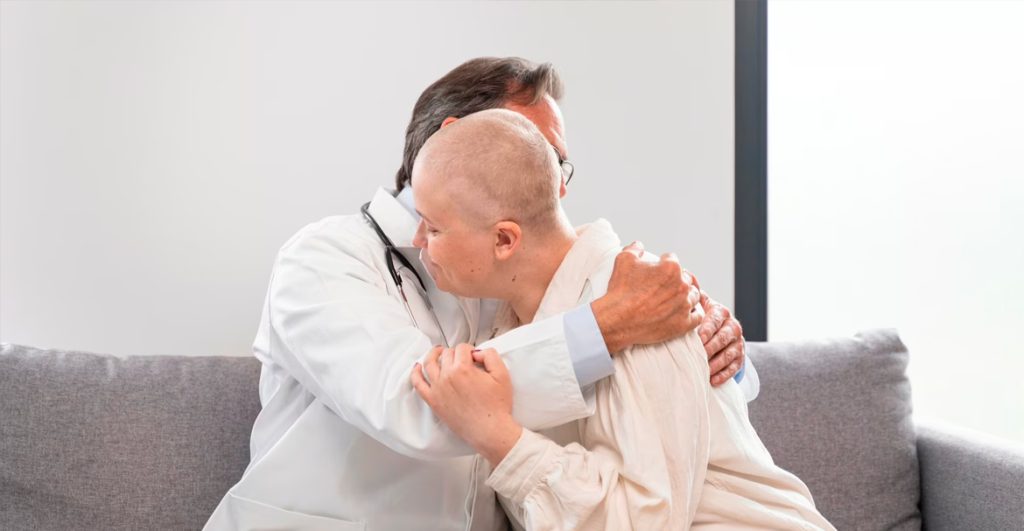Receiving a cancer diagnosis can be a frightening experience, and when faced with something so overwhelming and out of our control, it’s natural to feel fear and uncertainty.
Along with the physical symptoms of cancer, many people also suffer from mental health problems such as anxiety and depression.
However, it is important to remember that there are ways to deal with these problems during treatment. Let’s take a closer look at anxiety and depression in cancer patients.

Symptoms of anxiety and depression
Anxiety and depression in cancer patients can manifest in different ways, some of which may be difficult to identify or recognize.
The most common symptoms include difficulty sleeping or concentrating; feelings of hopelessness or helplessness; feeling overwhelmed; irritability or mood swings; physical symptoms such as fatigue; changes in appetite; loss of interest in activities you used to enjoy; isolation from friends and family; social withdrawal; fear of recurrence or death.
Coping strategies for anxiety and depression
When it comes to coping with anxiety and depression during cancer treatment, it’s important to remember that you’re not alone: there are several organizations that offer support to those dealing with mental health issues related to their diagnosis.
It may also be helpful to contact close friends, family members, or healthcare professionals who can provide emotional support during these difficult times.
In addition, there are some practical steps you can take on your own, such as setting realistic goals for yourself each day (for example, going for a walk) or keeping a journal where you can express your thoughts and feelings without worrying about being judged by others.
Participating in activities that bring you joy—such as painting or crafting—can also help lift your spirits when you’re feeling down.
Finally, if the thought of getting out of bed seems too daunting, try starting small by focusing on one task at a time: even something as basic as brushing your teeth can be an accomplishment worth celebrating.
It’s natural to feel anxious or depressed after a cancer diagnosis, but it doesn’t have to be! If you seek support from friends, family, health professionals, or organizations specifically dedicated to helping people struggling with mental health issues related to their diagnosis, and take proactive steps like setting realistic goals each day, you’ll be on the right track. to find peace of mind during this difficult time in his life.
As dark as things may seem today, know that better days are ahead.





